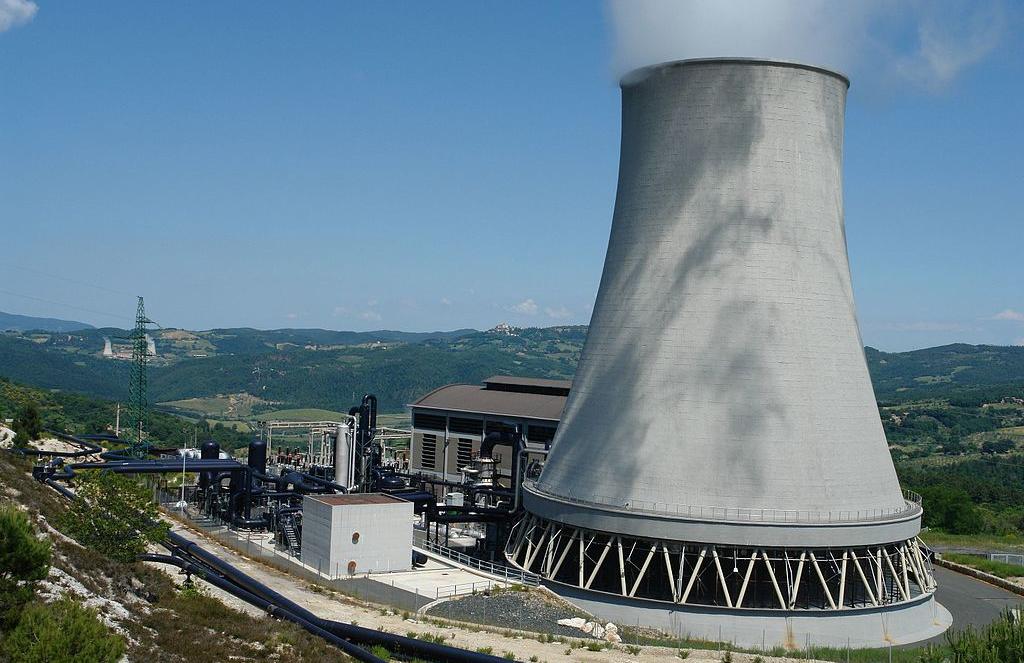Thessaloniki gets ready for its metro launch in November
The underground rapid transit lines have been under construction for almost two decades due to various project delays
 TheMayor.EU logo
TheMayor.EU logo 
The proposition focuses on the development of green hydrogen, geothermal and photovoltaic systems, Source: T. AGEMAR on Wikipedia, CC BY 4.0
The proposed EU recovery plan calls for a comprehensive energy strategy for the country
On 21 July, the interim government in Bulgaria published their proposal for funding through the EU’s post-Covid recovery plan. It calls for just under 800 million euros to facilitate the country’s green energy transition, with the focus being on geothermal, hydrogen and solar roof aid for individual households.
Compared to the previous unfinished version of the plan, left by Bulgaria’s last coalition government, the aid towards photovoltaic roofs for individual households has increased sevenfold and the funds for the production of green hydrogen have increased by a third.
At the same time, the plan calls for a significant reduction to the budget for the pipeline to the Maritza Iztok energy complex, currently operating at minimum capacity. The pipeline was previously intended to speed up the large coal plant’s transition to hydrogen by 2030.
The lion’s share of the funding, around 448 million euros, will go towards the establishment of renewable energy sources with storage batteries capable of producing 1.7 gigawatts of energy. However, private investors will have to supply another 900 million euros for the completion of the projects.
Another 35 million will go towards financing enterprises producing green hydrogen, with companies receiving 45% to 60% of their proposed funding. The ultimate goal of this part of the proposal is to foster cooperation between the government and producers, both working to secure additional EU funding from 2022 onwards.
In the end, by 2026, Bulgaria should be able to produce 7800 tonnes of green hydrogen. Some of it should go through the revised Maritza Iztok pipeline, fuelling the power plant after its redevelopment.
The most significant increase is in the money going towards solar roofs for individual homes. In the previous iteration of the plan, the sum was 10 million euros, now it has ballooned to 70 million. This is expected to benefit around 60,000 households, a five times increase on the previously proposed number.
The most exciting development is in the planned investment in geothermal energy, a resource that was wholly uninteresting to previous Bulgarian governments. The proposition calls for exploring the viability of a power plant in Northern Bulgaria. There is some evidence to suggest that geothermal energy is available at a depth of 4500 - 4800 metres.
Four villages in the North have been identified as potential candidates, two around the city of Montana, one near Vratsa and one near Lovech, where the new electric car manufacturing plant will be located.
The Technical University in tandem with the Sustainable Energy Development Agency will carry out exploratory drilling in the identified locations. Furthermore, a part of the money will be used in the creation of a research lab in the Technical University to provide academic aid and experts towards the further development of the concept.
Deputy Prime Minister Atanas Pekanov stressed there are some key aspects of the plan that the interim government has not completed intentionally, because, as non-elected government caretakers, they should not be making long term decisions on the development of the country. These will be voted on by the newly elected parliament in the coming months.
If you want to keep up with how European cities and regions are changing, follow us on Facebook, Twitter and Instagram.

The underground rapid transit lines have been under construction for almost two decades due to various project delays

Now you can get your wine in Talence by paying directly in Bitcoin

That’s because the state has to spend money on updating the railway infrastructure rather than subsidizing the cost of the popular pass

Rethinking renewable energy sources for the urban landscape

The examples, compiled by Beyond Fossil Fuels, can inform and inspire communities and entrepreneurs that still feel trepidation at the prospect of energy transition

Now you can get your wine in Talence by paying directly in Bitcoin

The 10th European Conference on Sustainable Cities and Towns (ESCT) sets the stage for stronger cooperation between the EU, national and local level to fast track Europe's transition to climate neutrality.

At least, that’s the promise made by the mayor of Paris, Anne Hidalgo

The underground rapid transit lines have been under construction for almost two decades due to various project delays

At least, that’s the promise made by the mayor of Paris, Anne Hidalgo

Hostal de Pinós is located in the geographical centre of the autonomous region

Despite its church-y name, the district has long been known as the hangout spot for the artsy crowds

Urban dwellers across the EU are having a say in making their surroundings friendlier to people and the environment.

Forests in the EU can help green the European construction industry and bolster a continent-wide push for architectural improvements.

Apply by 10 November and do your part for the transformation of European public spaces

An interview with the Mayor of a Polish city that seeks to reinvent itself

An interview with the newly elected ICLEI President and Mayor of Malmö

A conversation with the Mayor of Lisbon about the spirit and dimensions of innovation present in the Portuguese capital














